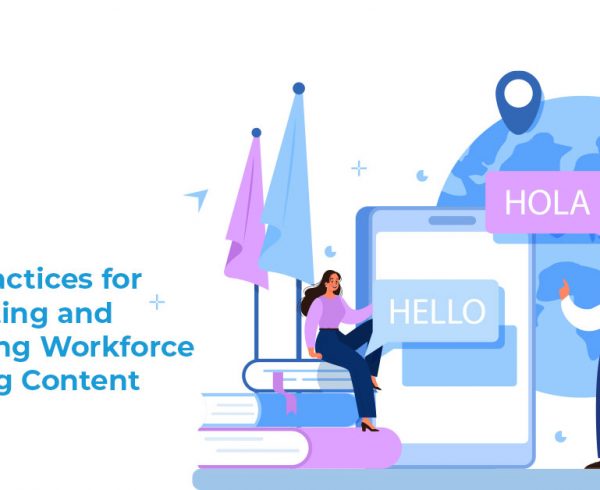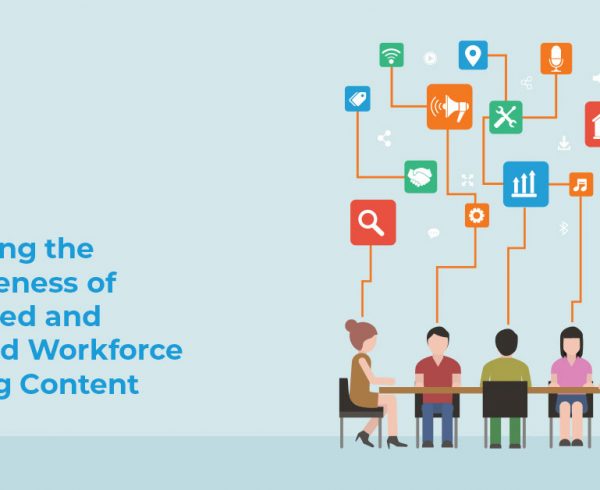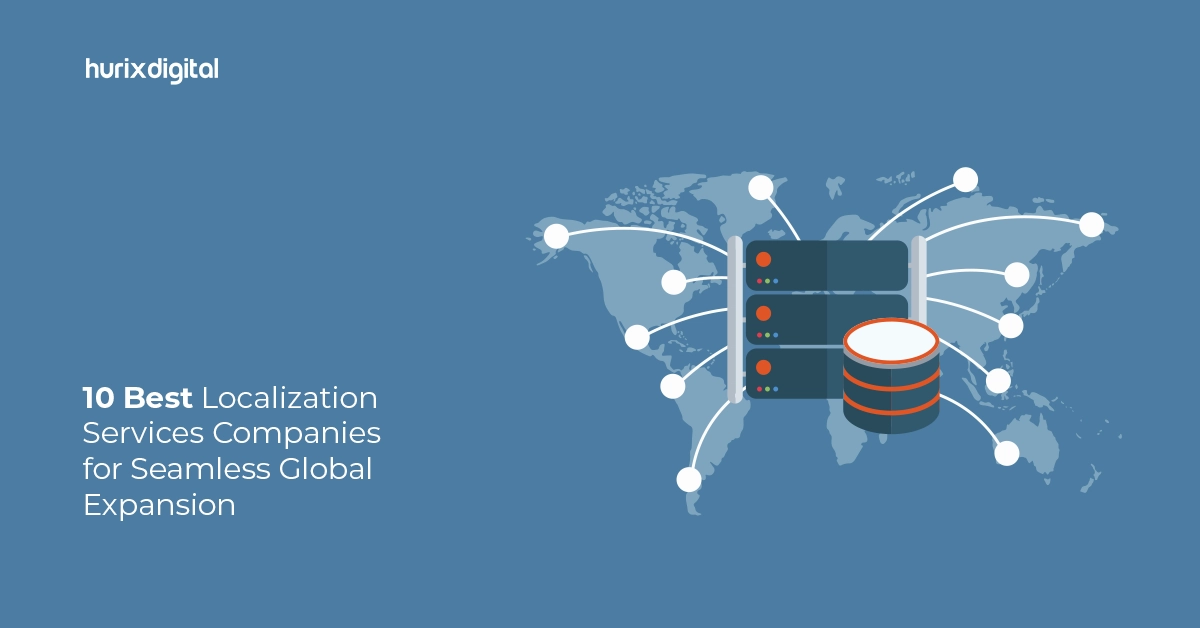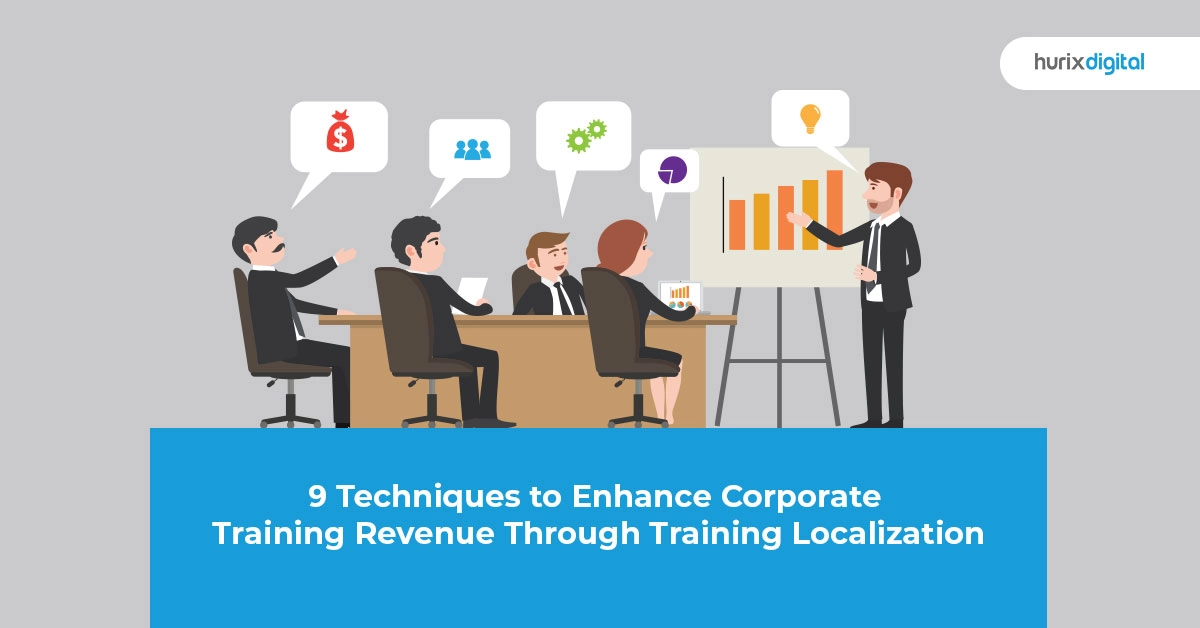Summary
This blog provides a brief overview of corporate training localization. It defines what it is and its benefits, and how businesses can leverage technology to scale their efforts.
Table of Contents:
In 1997, sociologist Roland Robertson introduced the term glocalization at a conference. He described it as the phenomenon of simultaneously maintaining the co-presence of both “universalizing and particularizing tendencies.”
This was when globalization was accelerating, and countries worldwide were getting connected through trade and business. Multinational corporations were rapidly expanding their teams to multiple locations in the world.
With the acceleration of remote culture in 2020, global workforces are expanding even further. Hence, Robertson’s prediction of the need for glocalization is even more relevant, especially in the context of corporate training.
Instead of delivering one-size-fits-all training programs, companies need to localize their global training efforts by making them inclusive but, more importantly, effective. Today, the localization software market, valued at $4.51 billion in 2021, is projected to grow to $ 6.64 billion by 2030. Hence, localization is fast becoming a best practice in the business world.
In this blog, we deconstruct what exactly is corporate training localization, its benefits, and how companies can leverage technology to help scale their efforts.
Also Read: 7 Factors to Consider for Large-Scale eLearning Content Localization
What is Corporate Training Localization?
Today, factors such as advances in technology, the disruption of supply chains, hybrid work cultures, and fast-evolving regulatory guidelines, among others, are shifting business paradigms. There is a need to make corporate training a continuous and sustainable process.
According to the World Economic Forum, 1.1 billion jobs will likely undergo tech-related transformation in the coming decade. However, only 0.5% of the Global Gross Domestic Product (GDP) will be invested towards learning for adults.
Hence, the onus of training falls on companies. However, training programs need to be designed and delivered with a more contextual focus, especially when businesses are expanding with a national and international footprint. Here’s an example.
Say a global eCommerce marketplace is growing its digital footprint in multiple countries. Corporate training will need to be custom-designed and delivered to employees, considering various factors.
For instance, training may need to be delivered in multiple languages. However, it’s not enough to only pay attention to language. Training and development programs must also consider local culture and customs, to name a few, to make training more effective.
This is where corporate training localization comes into play. It is a practice of corporate learning solutions to make them relevant to the local context of employees in various parts of the world. Besides localizing text, images, and measurement units, aspects of communication, such as units, idioms, phrases, fonts, colors, narration tone, and the graphical user interface, are also localized.
Also Read: 10 Reasons to Invest in Corporate Training Solutions
Top Benefits of Corporate Training Localization
Here is a snapshot of key advantages delivered through the localization of corporate learning solutions:
1. Inclusive Training Approach
The first benefit of corporate training localization is that it makes training more inclusive. Training is delivered in the language that employees are comfortable with. For instance, live session instructors will be savvy with the local language. On-demand resources will be available in multiple languages.
However, localization goes much beyond removing language barriers. The entire training approach will be adapted to weave in cultural nuances and regional differences, thus building a safe space for sustained employee learning and engagement.
2. Improved Knowledge Retention
Employees are much more likely to retain knowledge and information with the introduction of corporate training localization. For instance, if the entire learning process is gamified and local cultural references are introduced into this journey, it can motivate employees to learn faster and more efficiently.
They will be positioned to be more engaged in the learning process. Learning stops being a one-way street. It becomes an interactive process that nurtures knowledge retention, paving the way for skill-building.
3. Enhanced Work Productivity
Companies are continuously striving to raise work productivity. It’s a proven fact that a lack of skills demotivates employees and drives down productivity. On the other hand, employees engaged in continuous learning can face new market challenges and excel in their job roles.
The practice of corporate training localization further enhances the learning curve of a diverse set of employees. They become better problem solvers and leaders in their domain, contributing to the overall enhancement of productivity at work.
4. Higher Employee Retention
Low productivity contributes to the trend of quiet quitting and employees moving on to other companies. The inability to perform one’s job role results in demotivation.
A lack of localization of digital learning solutions stands in the way of employee growth. They are likely to prioritize a company that empowers them to grow through access to relevant, contextual training.
5. Lower Time to Proficiency
Companies may need to hire entire workforces from scratch as they expand to new allocations. The practice of corporate training localization can drastically help reduce the time to proficiency for new hires.
This metric is used to determine how long it takes for a new hire to become productive in the workplace. A lower time to proficiency lowers the hiring cost and drives profitability.
6. Building a Diverse, Engaged Workforce
Increasing diversity is an important role of business today. The practice of localizing corporate training contributes towards enabling businesses to hire a diverse set of employees.
Employees can optimize their knowledge and performance through inclusive training rather than forcing a diverse set of people to adhere to one avatar of training.
Such a practice helps them learn faster and nudges them to be more engaged in the long-term business narrative. Corporate training localization seeds a foundation upon which future leaders from diverse geographies can be nurtured.
Conclusion
Effective corporate training solutions empower employees to build skills faster and engage more in the company mission. By integrating localization into this process, e-learning service providers can drive more effective learning outcomes. Today, businesses are leveraging enterprise learning tools to help localize learning modules in a scalable, cost-effective manner.
The best approach to introducing localization into your corporate training model is to partner with a seasoned technology specialist with experience customizing workforce learning.
If your business seeks to build globalized workforce learning and development solutions, Hurix Digital will support you with the technology and customization to meet your business needs. Our state-of-the-art Learning Management System is available as a subscription model.
Get in touch with us to start a conversation and turbocharge your company’s training needs.











